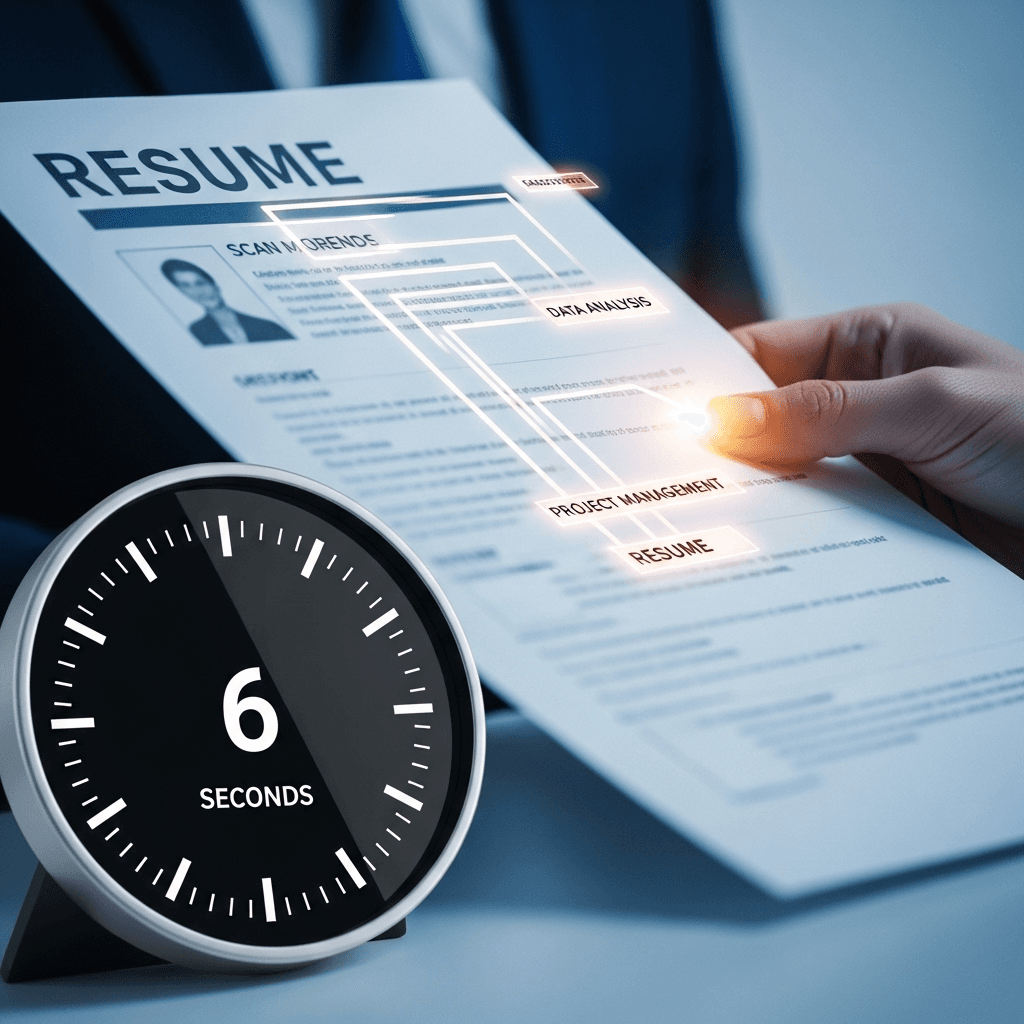Beyond "Tell Me About Yourself": 5 Tough Interview Questions and How to Answer Them

The handshake is firm, the initial pleasantries are exchanged, and you've just navigated the classic opener: "Tell me about yourself." You feel a moment of relief, but then comes the pause. You know what's next—the questions designed to dig deeper, test your composure, and reveal who you truly are as a professional. These are the questions that can make or break an interview.
But they don't have to be intimidating. With the right strategy, these tricky questions become opportunities to showcase your unique value, self-awareness, and perfect fit for the role. At BestCV52, we believe preparation is the antidote to anxiety. Let’s move past the basics and equip you to tackle five of the toughest interview questions with strategic, confident answers.
The 5 Tough Questions and How to Master Them
Understanding the "why" behind a question is the first step to crafting a powerful answer. Here’s a breakdown of what interviewers are really asking and how you can respond effectively.
1. "What's your biggest weakness?"
Why they ask it: This is a test of honesty, self-awareness, and your commitment to personal growth. They don’t expect you to be perfect, but they do expect you to be insightful and proactive.
How to answer it:
Choose a real, but non-critical, weakness. Select a skill that isn't essential for the core functions of the job you're applying for.
Show you've taken action. This is the most important part. Describe the specific steps you have taken, or are currently taking, to improve in this area.
End on a positive note. Frame it as a journey of professional development.
Confident Answer Example: "In the past, I sometimes found myself getting too invested in the fine details of a project early on, which could occasionally slow down initial progress. Recognizing this, I've adopted a more structured approach using project management tools to time-box tasks. This allows me to allocate specific periods for detailed work while ensuring the overall project momentum is maintained. It's really helped me balance thoroughness with efficiency."
Weak Answer Example: "I'm a perfectionist," or "I work too hard." (These are cliché and evasive.)
2. "Why should we hire you over other candidates?"
Why they ask it: This is your invitation to deliver your sales pitch. The interviewer wants to see if you've done your homework, understand the role’s critical needs, and can confidently articulate your unique value proposition.
How to answer it:
Synthesize the job description. Start by showing you understand their most significant needs.
Align your skills and experience. Connect your specific accomplishments directly to those needs. Use data and metrics wherever possible.
Add your unique differentiator. What do you bring that others might not? This could be a unique combination of skills, a passion for their specific mission, or a relevant achievement.
Confident Answer Example: "From our conversation and the job description, it’s clear you’re looking for someone who can not only manage key accounts but also strategically grow them. In my previous role, I didn't just maintain a client portfolio; I developed a new onboarding system that increased client retention by 15% in one year. I believe this proven ability to blend client relationship management with strategic, results-driven process improvement is the unique blend of skills that will allow me to start delivering value to your team from day one."
Weak Answer Example: "I'm a really hard worker and a fast learner, and I'm passionate about this industry." (Too generic and not supported by evidence.)
3. "Tell me about a time you failed or made a mistake."
Why they ask it: Everyone makes mistakes. Interviewers want to assess your accountability, problem-solving skills, and resilience. Do you blame others, or do you own your errors and learn from them?
How to answer it: Use the STAR method (Situation, Task, Action, Result).
Situation: Briefly describe the context.
Task: Explain what you were trying to accomplish.
Action: Detail the mistake and, crucially, the immediate steps you took to address it and take ownership.
Result: Share the outcome and, most importantly, the valuable lesson you learned that you now apply in your work.
Confident Answer Example: "Early in my career, I was managing a project and miscalculated the timeline for vendor deliverables, putting our launch date at risk (Situation/Task). As soon as I realized my error, I immediately informed my manager, took full responsibility, and presented a revised plan that involved re-prioritizing internal tasks to mitigate the delay (Action). We managed to launch with only a minor delay, but the key lesson for me was the importance of building contingency time into every project plan. It's a practice I've strictly adhered to ever since, which has led to much more accurate forecasting in all my subsequent projects (Result)."
Weak Answer Example: "My team member dropped the ball on their part, which made the whole project late." (Blaming others and showing no accountability.)
4. "Where do you see yourself in 5 years?"
Why they ask it: They want to gauge your career ambitions and see if they align with the company's growth opportunities. They are assessing if you see this job as a stepping stone or a long-term career move.
How to answer it:
Show enthusiasm for the present. Start by stating your commitment to mastering the role you're interviewing for.
Align your ambitions with the company. Connect your goals to potential growth paths within *this* organization.
Focus on development. Talk about skills you want to build and expertise you want to gain that will benefit the company.
Confident Answer Example: "My immediate focus is to excel in this role and make a significant contribution to the team. Looking ahead, I am eager to deepen my expertise in this field. In five years, I envision myself having become a true subject matter expert, possibly taking on more senior responsibilities like leading complex projects or mentoring junior team members. I'm particularly excited about this company's reputation for promoting from within, and I see this as the perfect place to build a long-term career."
Weak Answer Example: "In your chair," or "Running my own company." (Either too aggressive or shows a lack of commitment to the role.)
5. "Why do you want to leave your current job?"
Why they ask it: The interviewer is looking for red flags. Are you running from a bad situation (conflict, poor performance) or running towards a better opportunity? Your motivation matters.
How to answer it: Be positive and forward-looking. Never badmouth a previous employer.
Focus on the pull, not the push. Emphasize what is attracting you to this new role.
Express gratitude. Briefly mention something positive you learned or enjoyed in your previous role.
Make a clear connection. Explain exactly why *this specific opportunity* is the right next step for your career.
Confident Answer Example: "I'm very grateful for my time at my current company; I've learned a great deal about the fundamentals of marketing. However, I've reached a point where I'm ready to apply those skills to a larger, more strategic challenge. This role truly excites me because it offers the opportunity to work specifically on global campaigns and data-driven strategy, which is the direction I want to take my career."
Weak Answer Example: "My boss is difficult," or "I'm bored and underpaid." (Negative, unprofessional, and focuses on the past.)
Gain the Ultimate Interview Advantage with BestCV52
Mastering these five questions will put you ahead of the curve, but they are just the beginning. A truly successful interview strategy involves preparing for questions tailored to the specific company culture, the technical demands of the role, and your unique professional history.
Generic advice can only take you so far. That’s where we come in.
At www.bestcv52.com, we move beyond the basics to give you a true competitive edge. Our comprehensive career services are designed to prepare you for every stage of your job search:
Personalized Q&A Assistance: We don't just list common questions. We research the role, the company, and its culture to provide you with a tailored list of potential questions you’ll actually face—including specific behavioral, situational, and cultural fit queries.
CV and Cover Letter Enhancement: A powerful application is what gets you in the door. We ensure your documents are polished, professional, and perfectly aligned with the job you want.
Company Insights and Key Contacts: Walk into your interview with more than just basic knowledge. We provide deeper insights into company culture, recent news, and can even help identify key people in the organization, giving you a powerful strategic advantage.
Don't leave your dream job to chance. Let us help you turn interview anxiety into unwavering confidence.
Visit www.bestcv52.com today to learn how our expert guidance can help you land the offer you deserve.


